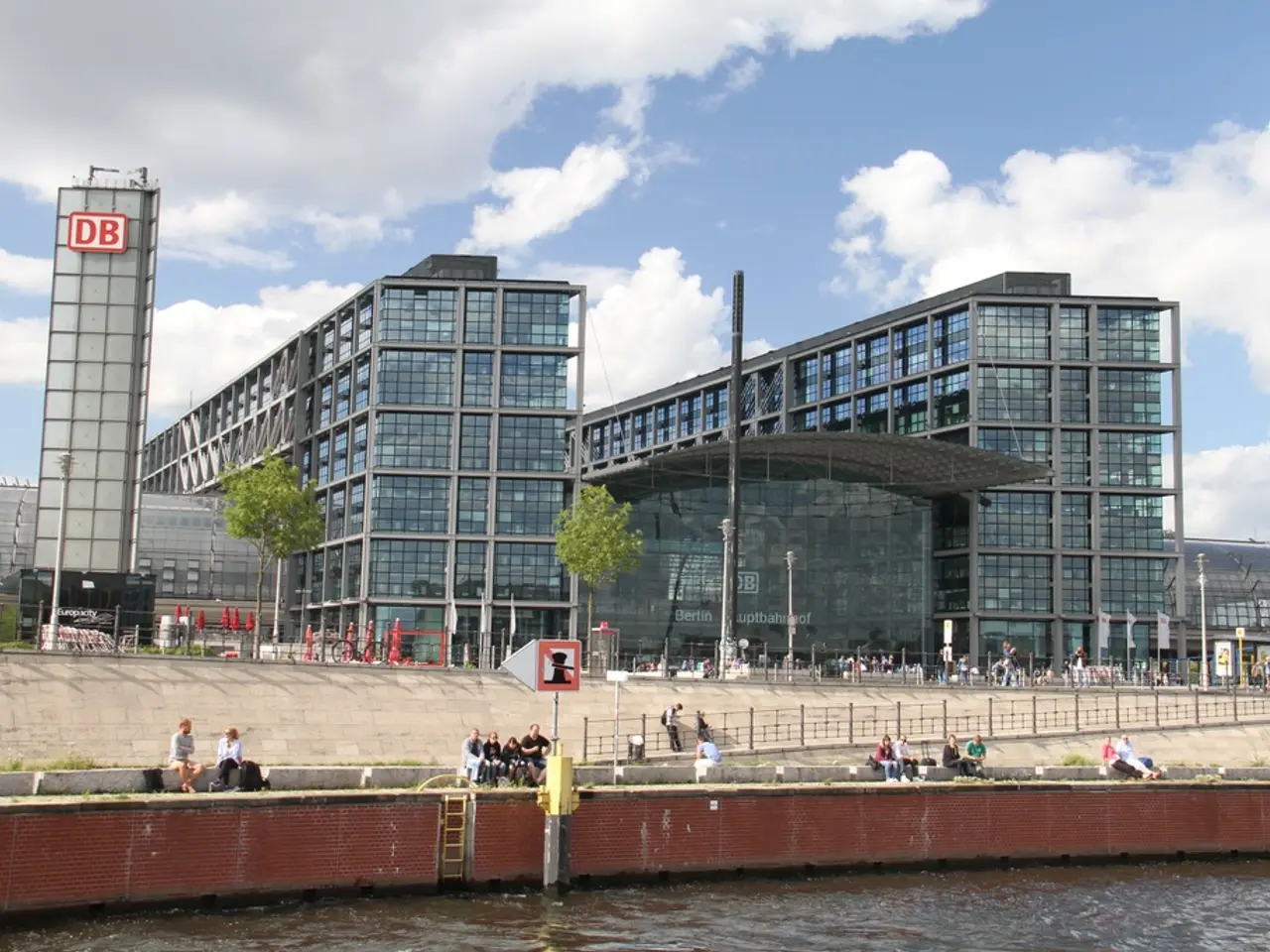Brandenburg Budget Approved: Coalition Faces the Heat
Budget Approved in Household: Coalition Faces Imminent Challenge - Approval granted - Alliance endorses temporary budget measures
Get ready, folks! The Brandenburg budget has been locked in, and it's set to turn up the heat for the SPD/BSW coalition. Despite the nail-biting majority vote in the state parliament, the double budget for this year and next was passed. With 45 coalition members voting in favor and 41 opposition members casting their ballots against, the budget contains controversial cost-cutting measures that have sparked months of protests.
The streets of Potsdam have been filled with teachers, educators, parents, and more, taking a stand against the proposed cuts. The Rosa-Luxemburg School led the charge with "Empty Chairs - Lacking Future," a protest against the coalition's austerity plans, fearing negative consequences for care. Finance Minister Robert Crumbach (BSW) defended the budget, referencing the economic crisis.
Minister President Dietmar Woidke (SPD) expressed satisfaction after the vote, stating, "We've passed a good budget." BSW faction leader Niels-Olaf Lüders, however, criticized the defection of coalition member Sven Hornauf, commenting, "I can't understand that."
The budget includes fewer teacher positions but additional hours for instructors. School expenses are expected to increase by around 180 million euros this year to 1.96 billion euros. Crumbach deemed these increases as "not a cut." The coalition removed budget cuts for municipalities, care, family centers, and the Medical University of Brandenburg, while increasing funds for substitute teachers in schools, daycare centers, and roads. More money is also planned for hospitals, police, and roads.
The double budget amounts to around 16.8 billion euros for 2025 and approximately 17.4 billion euros for 2026, according to the ministry. The controversial portions include new debts of nearly one billion euros for this year and approximately 1.25 billion euros for 2026, leaving the state’s reserve nearly depleted.
The opposition criticizes the high debt increase, including the AfD's Hans-Christoph Berndt, who accused the coalition of "mismanaging the money," and CDU finance politician Steeven Bretz who warned of hefty repayment costs.
The finance minister, however, defended the debts by stating, "In the face of a genuine economic crisis, it's economically incorrect for a state to worsen the crisis with improper savings." The coalition's critics, including The Left, the Greens, and the League of Free Welfare Associations, are skeptical of the coalition's austerity plan, arguing that such measures could jeopardize social welfare programs and essential services.
- Austerity Plan
- SPD
- Budget
- Brandenburg
- Controversy
- Teachers
- Robert Crumbach
- Welfare Services
- Economic Crisis
- Debt
Enrichment Data:The criticism directed at the SPD/BSW coalition's austerity plan in Brandenburg's budget from The Left (Die Linke), the Greens (Bündnis 90/Die Grünen), and the League of Free Welfare Associations (Freier Wohlfahrtsverband) centers on their opposition to the proposed austerity measures. These groups argue that cutting spending and pursuing fiscal restraint could undermine social welfare programs and public services.
The Left, the Greens, and the League of Free Welfare Associations criticize these cuts as disproportionately impacting vulnerable populations and reducing funding for social justice initiatives. They advocate for alternatives to austerity that maintain or increase investment in welfare and social programs to ensure social cohesion and support for disadvantaged groups.
These opposition critiques echo typical positions of such groups in the German political landscape, as austerity is frequently contested by left-leaning parties and social welfare organizations due to its social impact. Of note, no direct quotes were found in the search results, but this summary reflects the general criticisms outlined in relevant analyses of austerity policies in Germany and the political debate surrounding SPD-led coalitions.[1][3]
- Critics, including The Left (Die Linke), the Greens (Bündnis 90/Die Grünen), and the League of Free Welfare Associations (Freier Wohlfahrtsverband), in Brandenburg's political arena, oppose the SPD/BSW coalition's austerity plan, arguing that the proposed cuts to funding could undermine social welfare programs and essential services.
- The opposition, consisting of The Left, the Greens, and the League of Free Welfare Associations, advocate for alternative policies that maintain or increase investment in welfare and social programs to ensure social cohesion and support for disadvantaged groups, questioning the fairness of disproportionately impacting vulnerable populations with the austerity measures.







